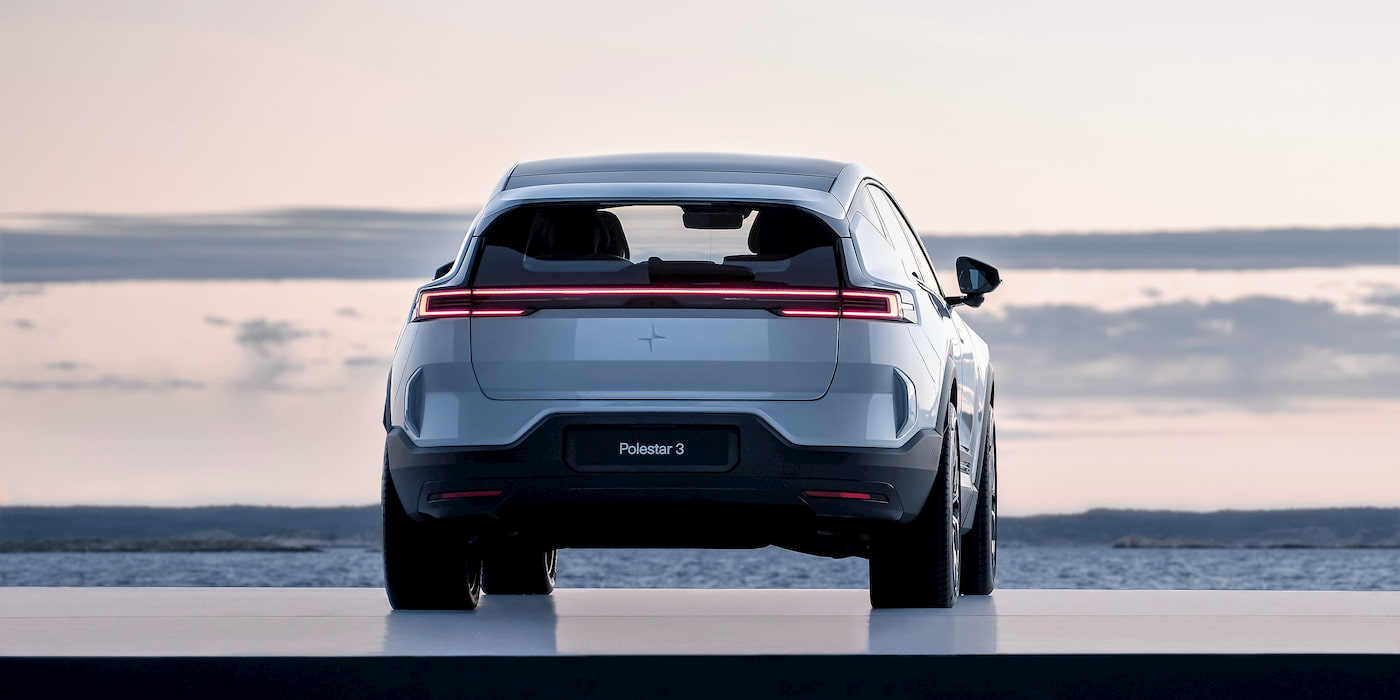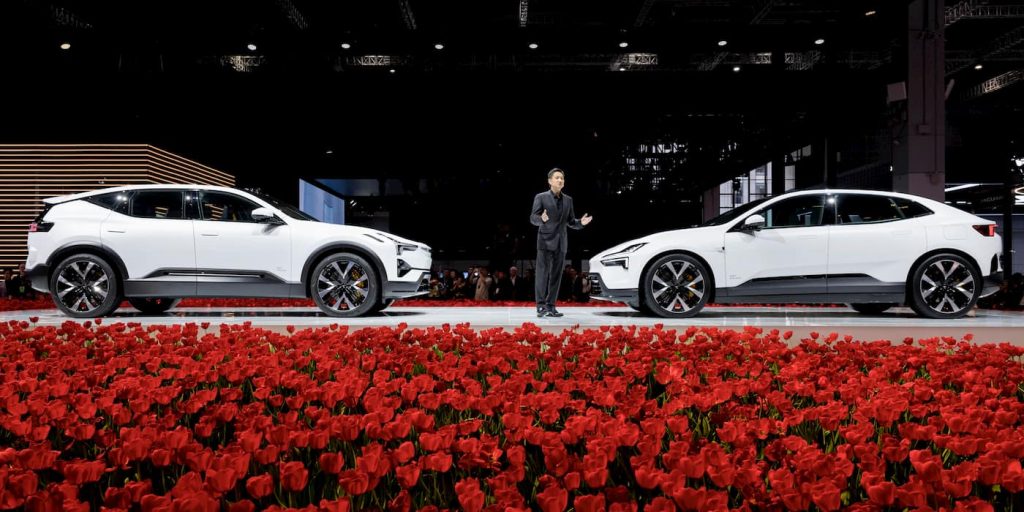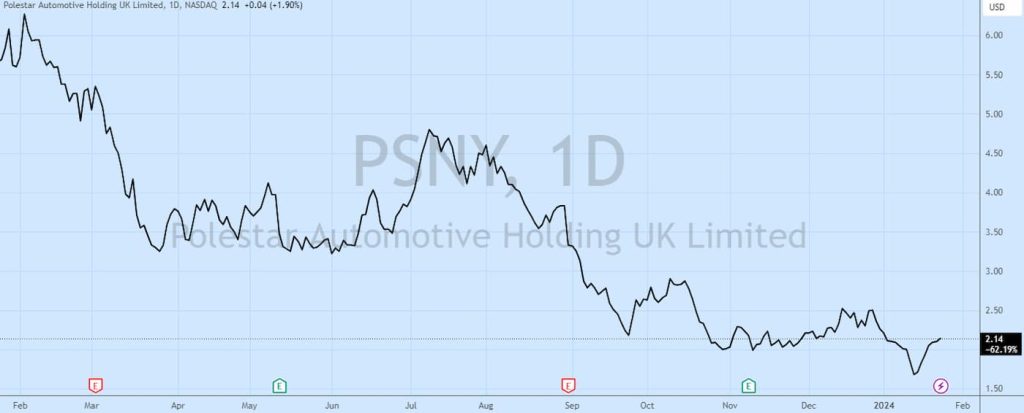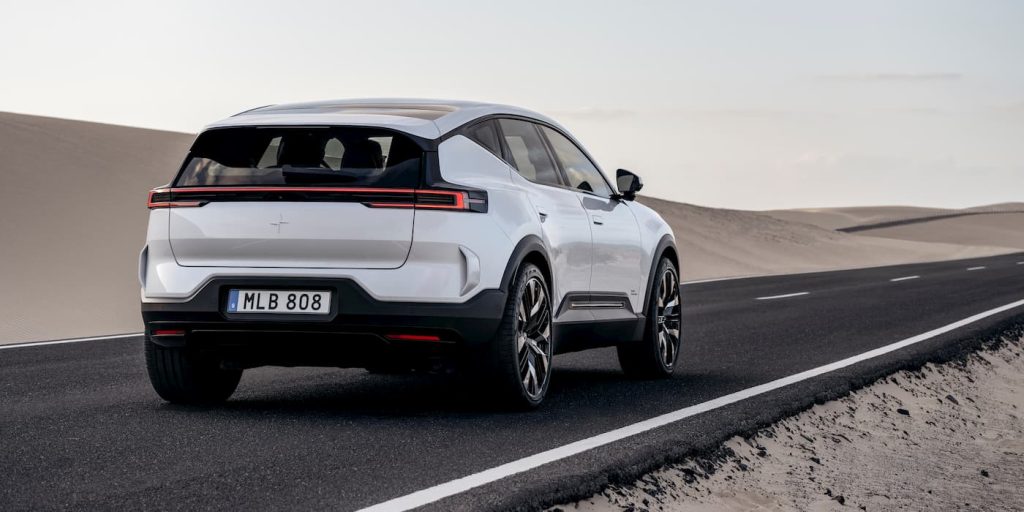[ad_1]

Should Volvo take EV maker Polestar (PSNY) private? Investment research firm Bernstein says it may make more sense.
Polestar built high-performance vehicles alongside Volvo for over two decades. After Geely bought out Volvo, Polestar was established as an independent electric vehicle brand in 2017.
The brand’s first passenger vehicle, the Polestar 1, was a hybrid that offered up to 78 miles of all-electric range. Polestar’s first all-electric vehicle, the Polestar 2, was revealed in February 2019.
Since launching the Polestar 2 over three years ago, Polestar has expanded into 27 markets globally. The Polestar 2 has become a top seller in key EV markets like Norway, Sweden, Germany, and others.
Polestar hit a milestone with its 150,000th Polestar 2 rolling off the line last August. However, the EV maker has struggled to gain ground with rising competition.
The EV maker delivered 54,600 vehicles last year, up 6% from 2022. Despite cutting its delivery target in November, Polestar still missed it by over 5,000 units. Initially, Polestar expected to deliver 80,000 vehicles last year.

Polestar believes its upcoming electric SUV and first CUV will help spark demand. After delaying Polestar 3 production, the company is expected to begin building the electric SUV in early 2024.
Meanwhile, Polestar 4 production began in China in November. The EV maker sold 880 Polestar 4 models in China last year.

Should Volvo take Polestar private?
Polestar’s deliveries fell in the last three months of the year due to a “challenging market,” according to CEO Thomas Ingenlath.
The EV maker now expects 2023 gross profit margins to be around break-even from the previously revised 2% target (down from 4%).
Although the delivery growth pushed revenue up to $367.7 million (+25%) in Q3, higher costs led to gross margins falling 63% to $36.3 million.
The rising costs led to an operating loss of $261 million (+33%). Polestar had $951.1 million in cash at the end of September, not including an additional $450 million loan from Volvo and Geely.

Polestar’s stock has fallen over 62% in the past 12 months and is down over 85% from its all-time highs.
Bernstein analyst Daniel Roeska said in a note that Polestar is “on a road to nowhere.” The note added, “We love the innovative asset-light strategy, we like the cars, but we don’t think the company should be a stand-alone equity.
The investment research firm is initiating coverage on Polestar’s stock with an underperform rating. It also gave it a $1.15 target share price, suggesting over 40% downside.

Roeska said that although “we would like to see the concept and brand survive,” it believes it “would make more sense for Polestar to eventually fold back into the Volvo Cars-Geely ecosystem.
Ingenlath defended the EV maker, saying, “Anybody interested in the value of the company only needs to go to the ticker to see that it is trading at $4 billion worth.”
He didn’t reveal whether Volvo or Geely was pushing Polestar to go private. Ingenlath did say, “It’s our own interest to not make this company always dependent on being funded by our shareholders.”
Electrek’s Take
Despite Q4 deliveries slowing, Polestar has a lot to look forward to. Its first electric SUV, the Polestar 3, is expected to launch soon.
In the US, the Polestar 3 will start at $83,900. It will come in two configurations – a long-range dual motor and a performance pack version. Both will be powered by a lithium-ion battery with 111 kWh capacity.
The standard version (starting at $83,900) will include up to 300 miles EPA range. The performance version will include 517 hp and 671 lb-ft of torque for a 0 to 60 mph sprint in 4.6 seconds. It will feature a 270-mile range for an MSRP of $89,900.
The electric SUV will face stiff competition, including the Rivian R1T, Tesla Model Y (and Model X), and BMW iX.
Polestar will also scale production of the Polestar 4 in China. The brand is deploying a “targetted approach” with key EVs hitting major auto markets.
Other EV startups, including Lucid, have struggled to gain traction, with new EVs flooding the market. Price cuts from leaders like Tesla and BYD have made it hard for rivals to compete.
Source: Bloomberg
FTC: We use income earning auto affiliate links. More.
[ad_2]
Source link
